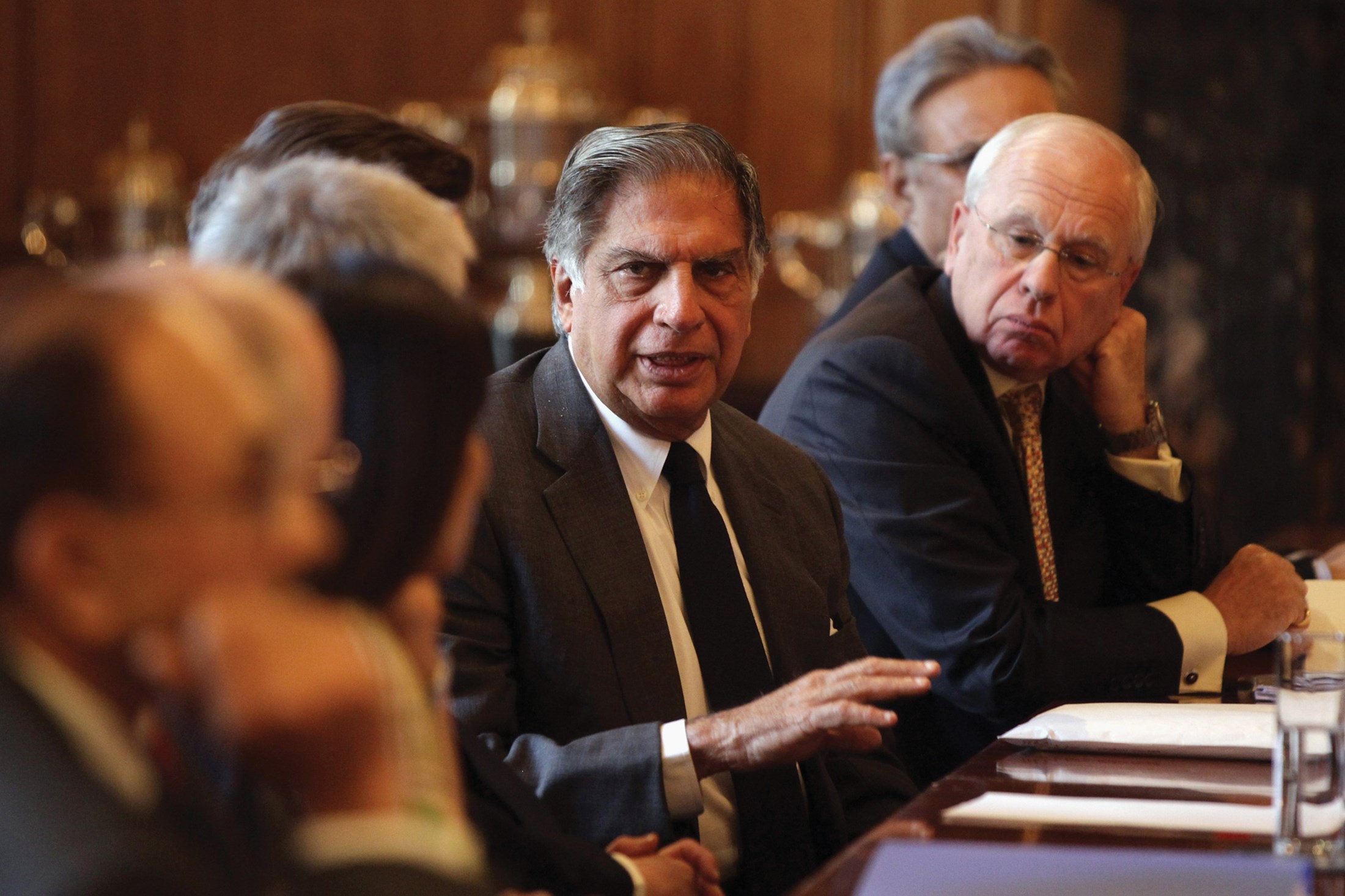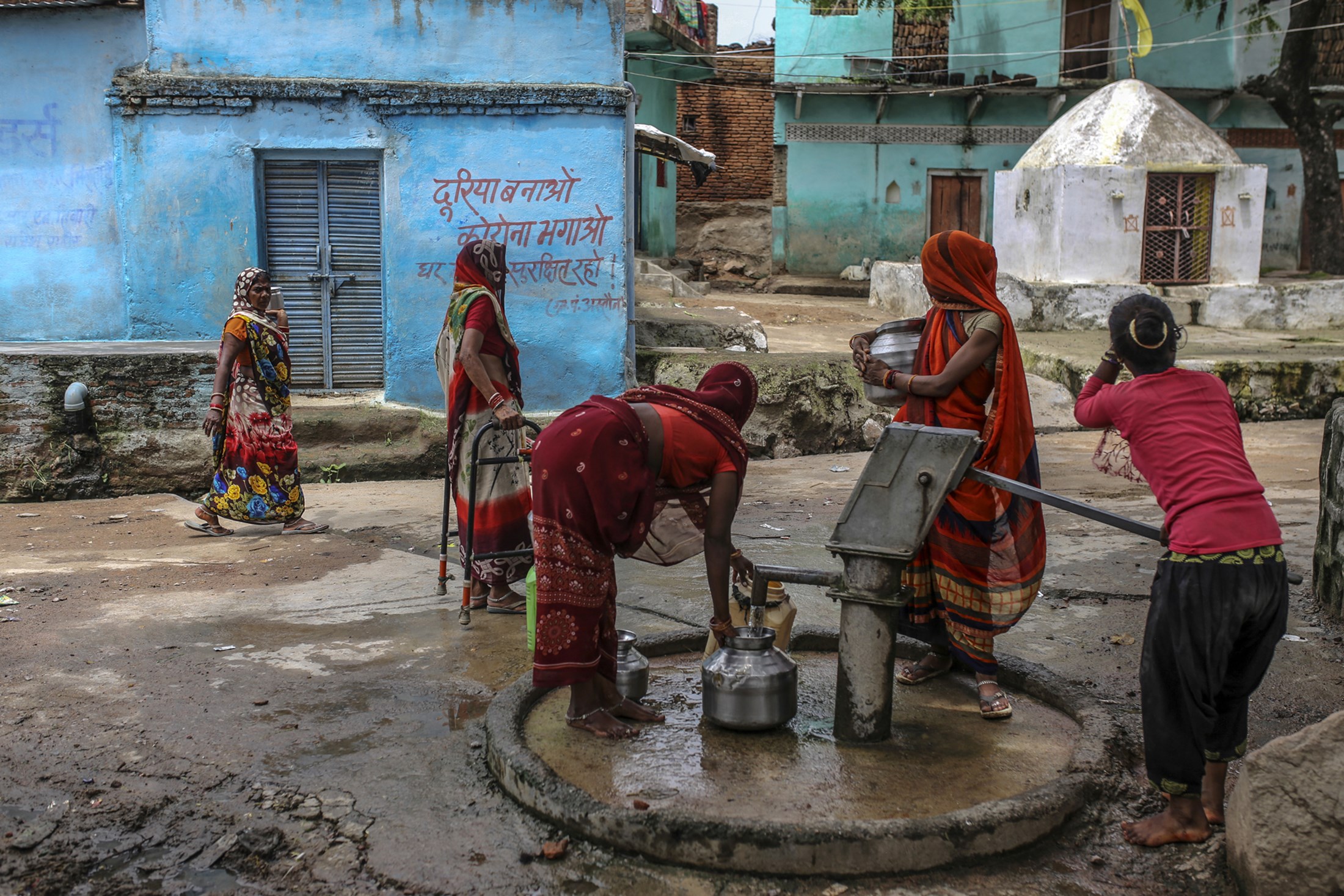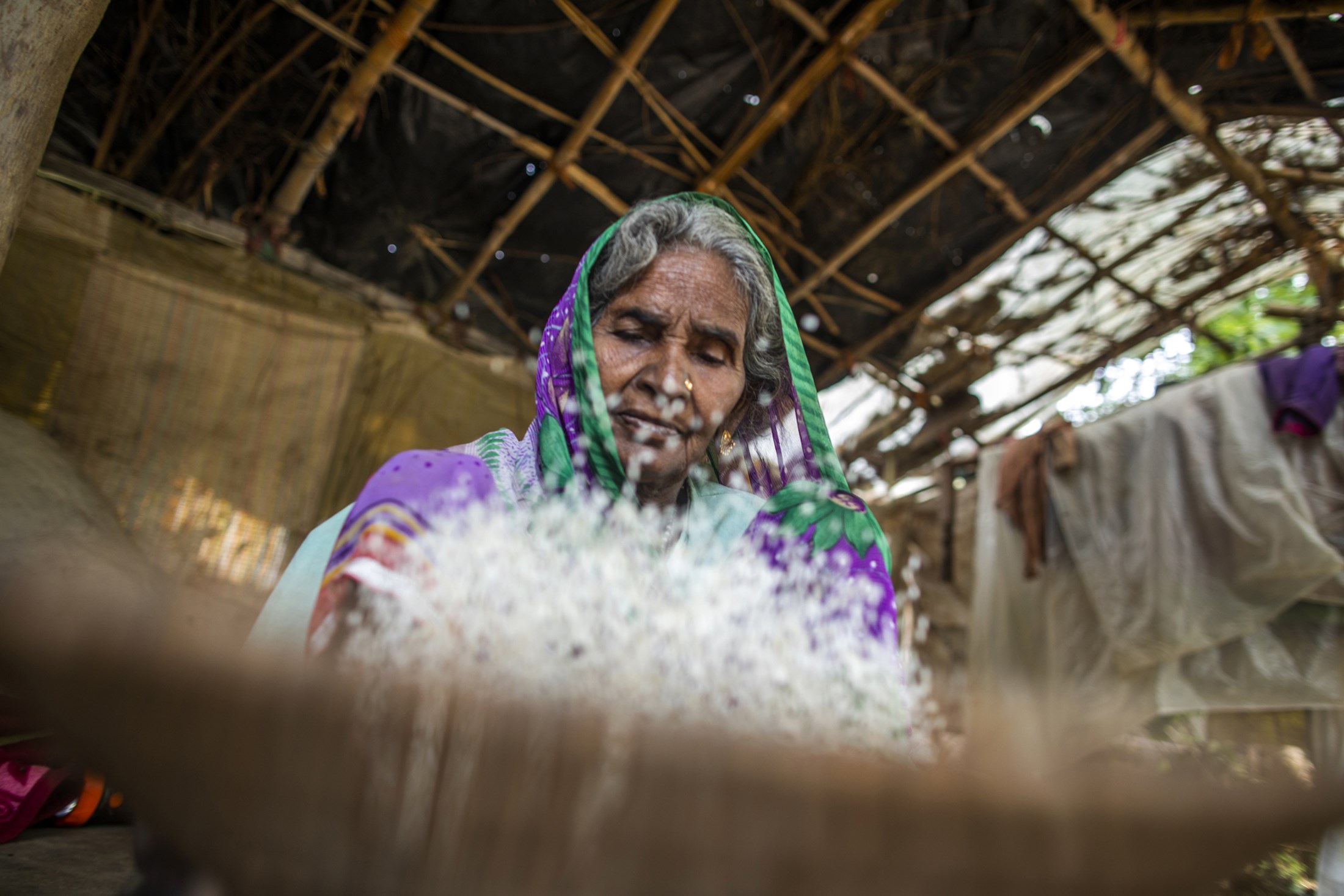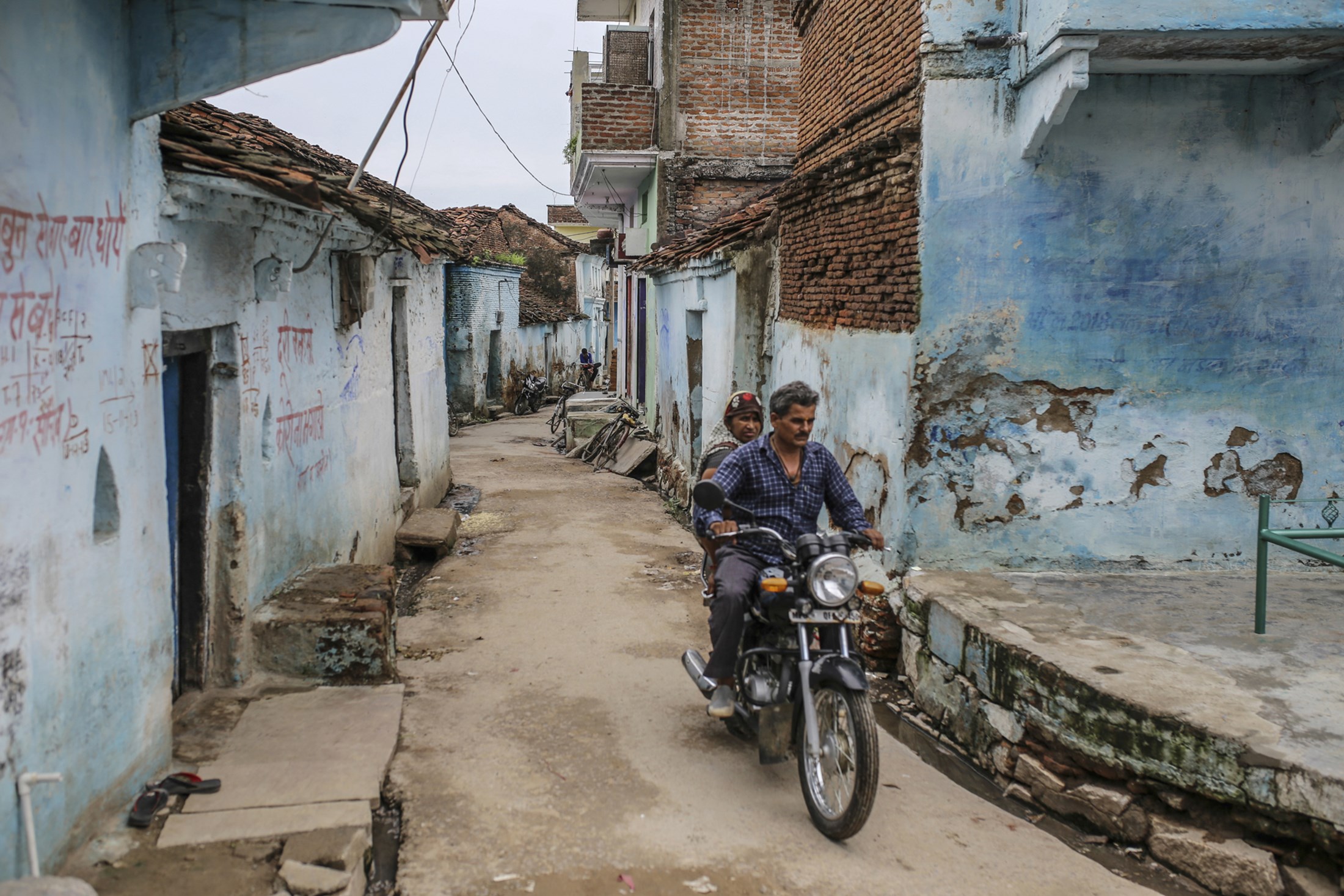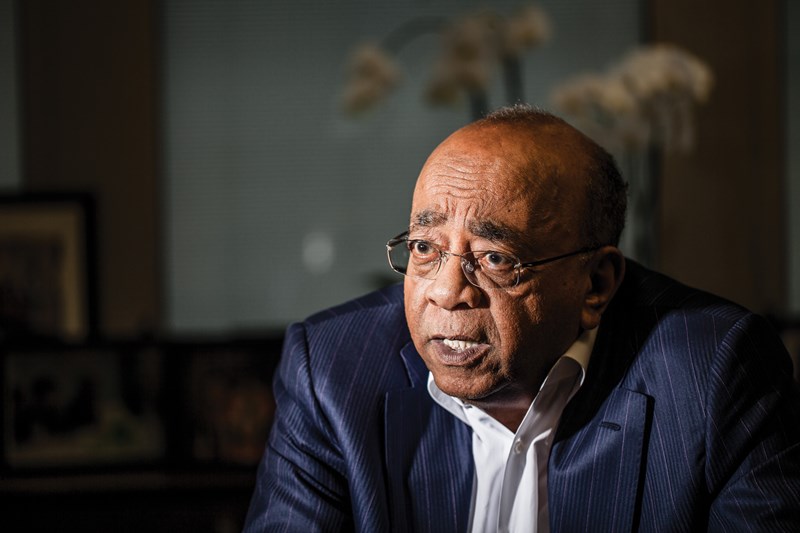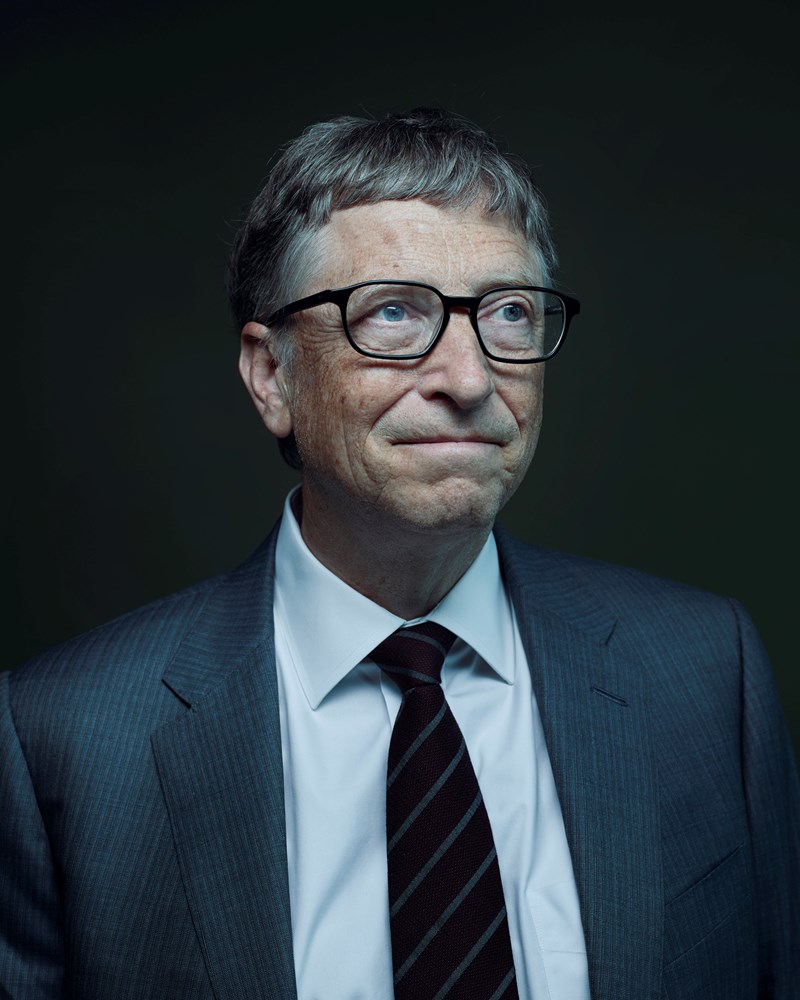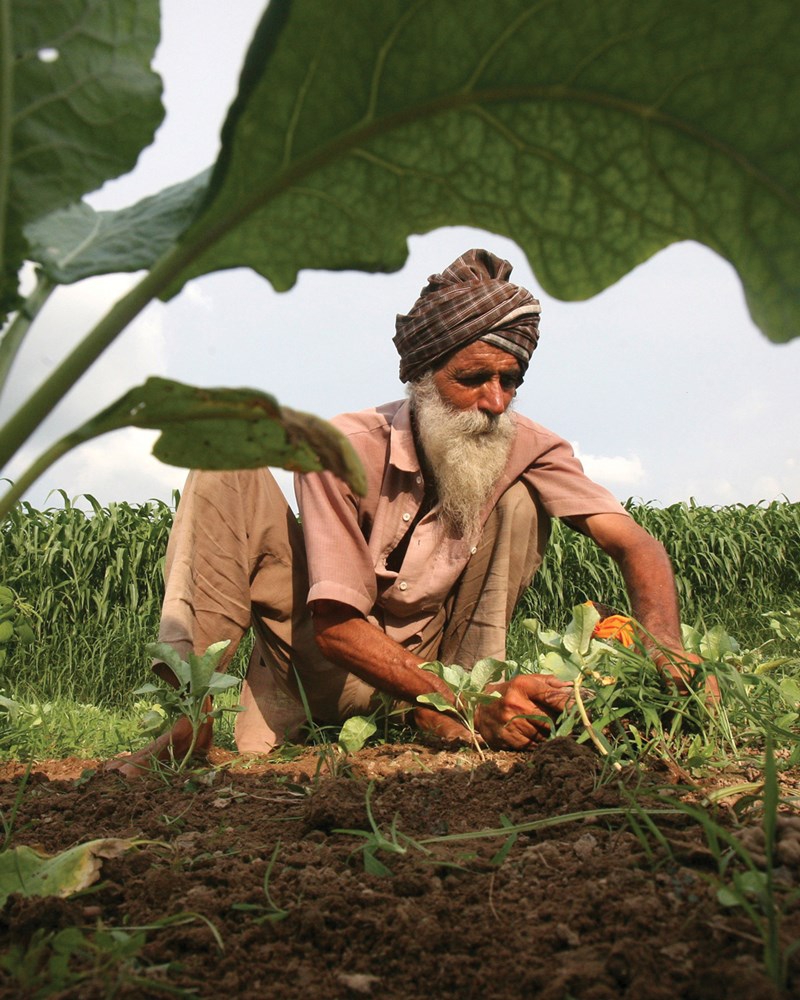His employees talk of an almost obsessive attention to detail, and the considered pauses he takes before he delivers approval or reproach. His critics begrudge him as the inheritor of an opportunity, a legend by dint of dynastic succession rather than entrepreneurial distinction. The rural poor speak of him as an almost otherworldly figure, able to change lives at the stroke of a pen or the inflection of a bushy grey eyebrow.
In the flesh, Ratan Tata addresses all three perceptions. He reels off statistics as though they were laid out in front of him, speaking slowly and deliberately and clarifying even the most innocuous of verbal missteps. He makes no claim to have been an empire-builder, when referring to his past as the “custodian” of a company of which less than 2 per cent is owned by the Tata family. When he speaks of India’s manifold problems, he does so with a fierce authority that would lift the hearts of millions of Indians without a voice.
“Slumdog Millionaire was a successful movie and there are a number of people who think it showed India in a bad light,’ he says. “It showed India in a realistic light. We should all be ashamed of what [inequality] there is, and try to solve it. Are we doing it? No. And that’s something that really needs to change.”
From his nondescript offices in Mumbai, the 76-year-old former chairman of the Tata business empire is attempting to spearhead that change. Now retired from the corporate sphere, he retains the chairmanship of the Tata trusts, a group of some of the country’s oldest and certainly most high-profile philanthropic organisations.
The trusts hold around 66 per cent of the equity capital of Tata Sons Limited, the holding company of the Tata Group. Founded in 1868, the Tata Group encompasses more than 100 companies across sectors as diverse as IT, engineering, energy, steel, chemicals and automobiles.
For more than a century, a significant proportion of the conglomerate’s profits have been ploughed back into helping change the lives of impoverished Indians. While the Tata Group routinely spends 4 per cent of its net profits on activities related to corporate social responsibility (CSR), the two largest Tata trusts between them disbursed an additional $800m during Tata’s two-decade tenure as chairman of both organisations.
And, as has become de rigueur for successful business leaders intensifying their efforts in the philanthropic sphere, Tata is attempting to instil a corporate culture in the charitable trusts he now oversees on a day-to-day basis.
“One hopes that one can treat the philanthropic activities of the trusts as a corporate entity: setting goals, looking at efficiencies, monitoring the outcome and benefits of what we’re doing,” he says.
“The first thing is to question a lot of what is going on already, and it’s something I faced with the Tata Group when I started. I was told; ‘This is the way we’ve been doing things for 25 years, and who are you to ask?’ But when you’re the chairman they have to answer, and so things did change in time.”
Tata’s methods, resented at first, helped turnover grow tenfold to $100bn during his chairmanship. If he can achieve even a small percentage of that impact now that his focus is directed solely towards the Tata trusts, the naysayers are likely to be proved wrong again.
“Operating traditionally is perhaps the greatest weakness of the trusts; there’s a tremendous resistance to change, and I have not shaken that attitude just yet,” he admits. “A priority is to go out and look at what other foundations are doing, broaden our thinking and benchmark ourselves against others.”

